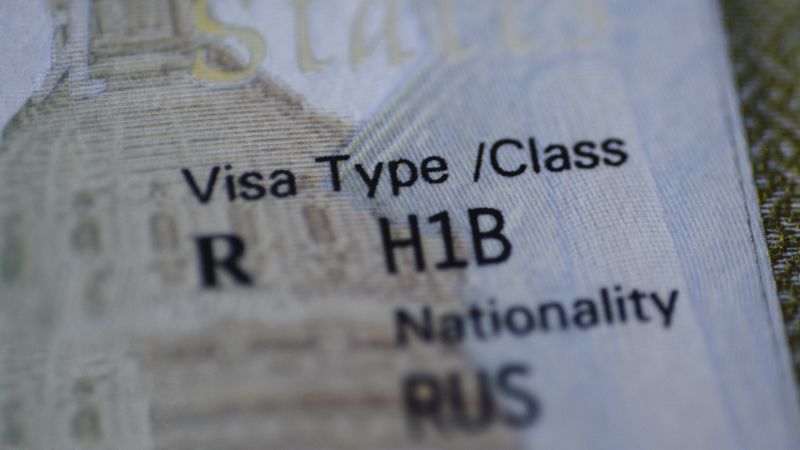Trump Administration Clarifies Proposed $100,000 H1-B Visa Application Fee
This clarified H1-B fee proposal, while softened, still signals potential increased costs for employers and hurdles for new skilled workers seeking US visas.

Subscribe to our newsletter and stay informed about latest H1B news, policy updates and and other developments.
Article Summary
President Donald Trump's announcement of a $100,000 H1-B application fee initially caused widespread fear and confusion among foreign workers and employers. The White House later clarified that this substantial fee would only apply to new H1-B applications, not existing visa holders. This policy, intended to curb program abuse, could still have significant implications for companies reliant on skilled foreign talent and for prospective H1-B workers.
Original Article: edition.cnn.com
[ Sentiment: negative | Tone: factual ]
This summary and analysis were generated by TheNewsPublisher's editorial AI. This content is for informational purposes only; it does not constitute legal or immigration advice.
[ Sentiment: negative | Tone: factual ]
This summary and analysis were generated by TheNewsPublisher's editorial AI. This content is for informational purposes only; it does not constitute legal or immigration advice.
TNP AI: Key Insights
This policy, even with the clarification, represents a significant potential financial barrier for companies seeking new H1-B talent and could deter highly skilled individuals from considering the U.S. as a career destination.
Prior to this announcement, H1-B application fees were considerably lower, typically ranging from a few hundred to several thousand dollars with various surcharges, making a $100,000 fee an unprecedented and drastic increase.
For tech startups and smaller businesses, such a steep fee could be prohibitive, potentially forcing them to reconsider hiring foreign talent or to shift operations to countries with more favorable immigration policies. This could impact the U.S.'s ability to attract and retain top global talent.
This move underscores a broader administrative trend towards restricting skilled immigration, which could lead to further policy changes impacting visa categories beyond H1-B and potentially spur legal challenges from industry groups or advocacy organizations.




